We’ve made a lot of progress toward ending cosmetics tests on animals, and our focus has now turned to ending mandatory cosmetics tests on animals in China. However, in the medical field, there’s still much work to be done to end cruel experiments on animals that also happen to be irrelevant to humans.
The following quotes from esteemed scientists, government officials, and doctors prove that this is true:
“Traditional animal testing is expensive, time-consuming, uses a lot of animals and from a scientific perspective the results do not necessarily translate to humans.”
—Dr. Christopher Austin, former director of the National Institutes of Health (NIH) Chemical Genomics Center
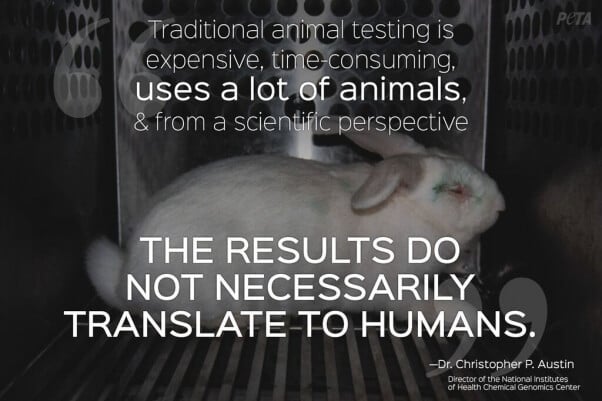
“[M]ice are mice, and people are people. If we look to the mouse to model every aspect of the disease for man, and to model cures, we’re just wasting our time.”
—Dr. Clifton E. Barry, chief of the Tuberculosis Research Section at the National Institute of Allergy and Infectious Diseases
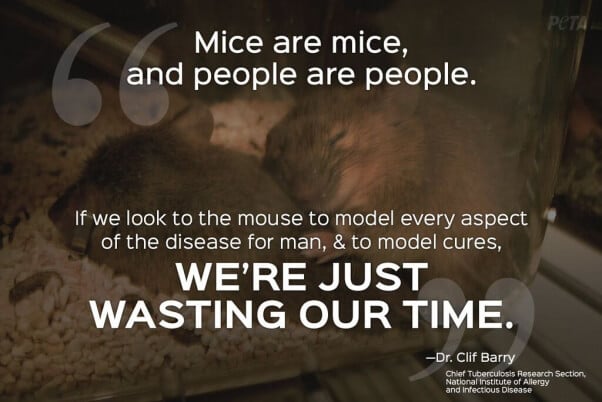
“We have moved away from studying human disease in humans. We all drank the Kool-Aid on that one, me included. … The problem is that [testing on animals] hasn’t worked, and it’s time we stopped dancing around the problem. … We need to refocus and adapt new methodologies for use in humans to understand disease biology in humans.”
—Dr. Elias Zerhouni, former director of the National Institutes of Health
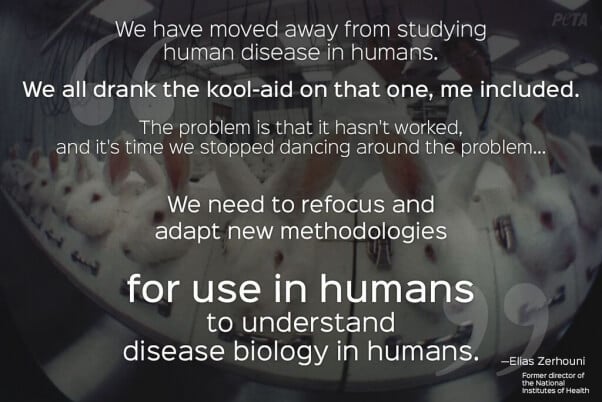
“[Researchers] are so ingrained in trying to cure mice that they forget we are trying to cure humans.”
—Dr. Ronald W. Davis, professor at Stanford University
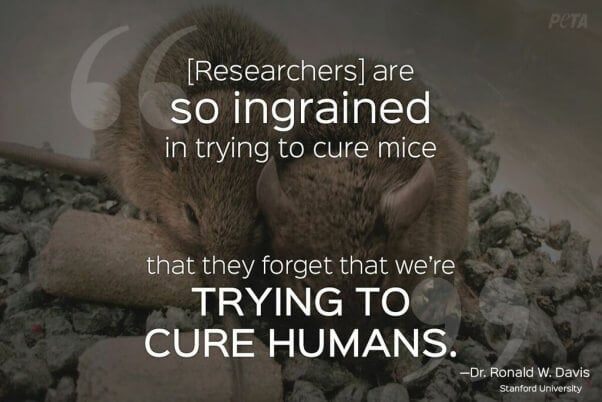
“[P]revention [of polio] was long delayed by the erroneous conception of the nature of the human disease based on misleading experimental models of the disease on monkeys.”
—Dr. Albert Sabin, developer of the oral polio vaccine
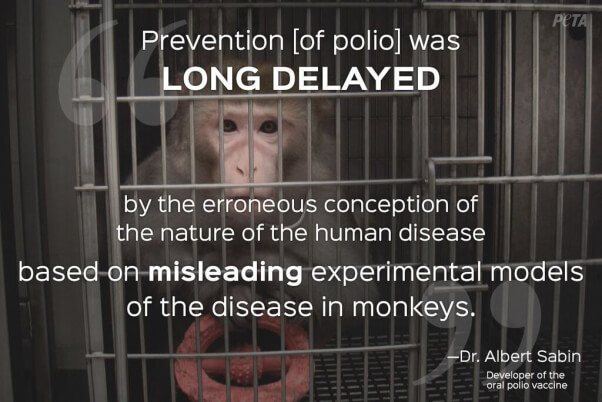
“The history of cancer research has been a history of curing cancer in the mouse. We have cured mice of cancer for decades and it simply didn’t work in humans.”
—Dr. Richard Klausner, former director of the National Cancer Institute
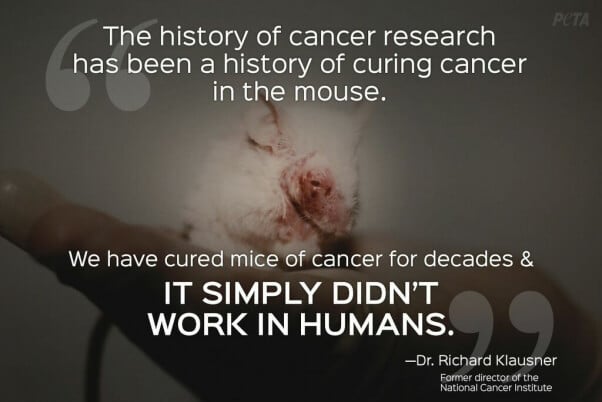
“Currently, nine out of ten experimental drugs fail in clinical studies because we cannot accurately predict how they will behave in people based on laboratory and animal studies.”
—Michael O. Leavitt, former secretary for the U.S. Department of Health and Human Services
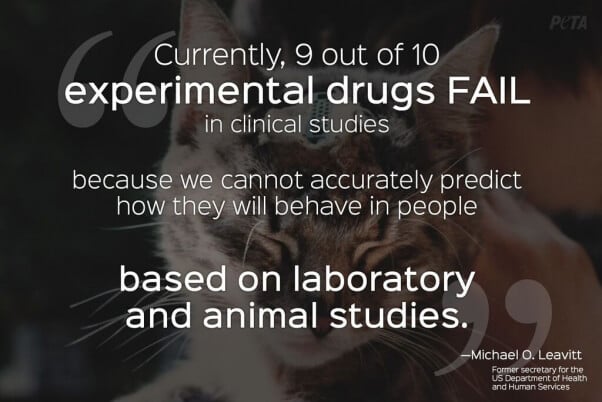
“Patients have been too patient with basic research. Most of our best people work [on] lab animals, not people. But this has not resulted in cures or even significantly helped most patients.”
—Dr. Ralph Steinman, former immunologist at Rockefeller University
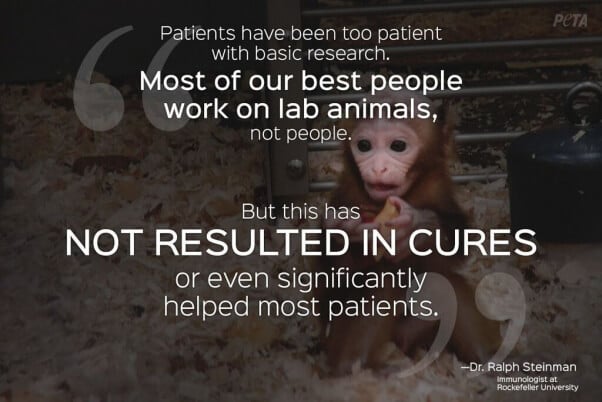
We’re working every day to end tests on animals, and our consistent victories speak for themselves.
Join us in speaking up for animals by checking our Action Alerts page and signing our petitions.
We’re currently urging Texas A&M University to close its muscular dystrophy (MD) dog laboratory, release all the dogs in its lab for adoption into good homes, and redirect resources toward modern, humane research methods.
Text VEG to 73822 to get the latest vegan lifestyle tips, recipes, and urgent action alerts texted right to your phone.
Terms for automated texts/calls from PETA: https://peta.vg/txt. Text STOP to end, HELP for more info. Msg/data rates may apply. U.S. only.







